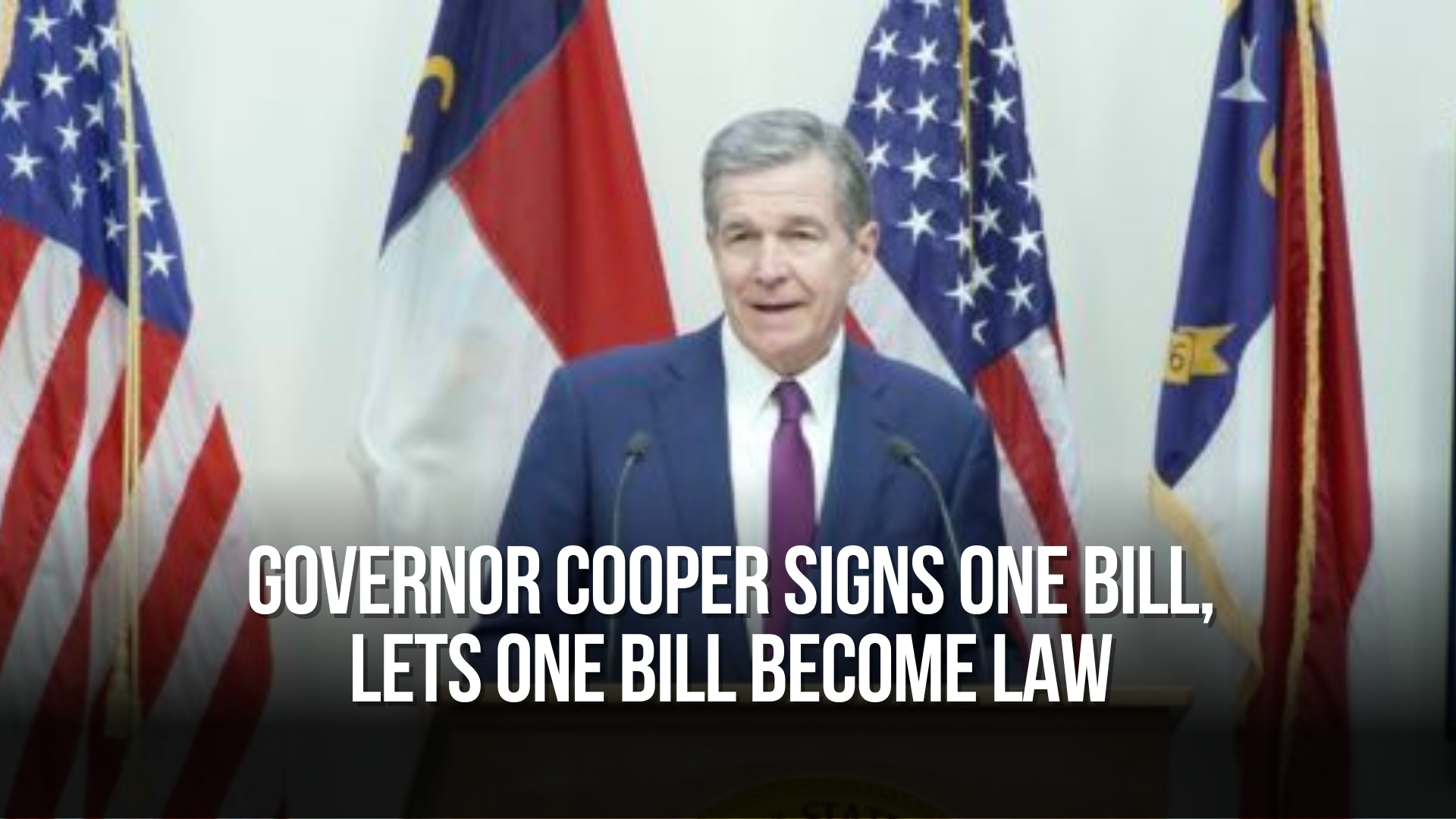John Hood: Republican Polls Split on Mark Robinson
RALEIGH — In the latest Civitas Poll, 49% of North Carolinians likely to vote in the Republican primary say they’d pick Lt. Gov. Mark Robinson to be the GOP nominee for governor in 2024. Of the remaining voters, 41% are undecided and the rest support other candidates such as State Treasurer Dale Folwell or former congressman Mark Walker.
So, is Robinson the inevitable nominee? That’s been the conventional wisdom. Keep in mind that the threshold to win a primary outright, without a runoff, is only 30%. Robinson is already well above that, uh, mark.
Most North Carolina Democrats agree with that conventional wisdom — and find it delightful. They have a thick binder of opposition research on Mark Robinson. They’re looking forward to playing up his checkered financial past, unimpressive tenure as lieutenant governor, and history of outrageous comments.
Given the recent terrorist attacks on Israeli civilians by Hamas thugs, in particular, Robinson’s past use of antisemitic tropes in social-media posts will appear not just in attack ads but in appeals to out-of-state donors. Democrats think the resulting river of campaign cash will wash away not just Robinson but other Republican candidates down the ballot in 2024.
The lieutenant governor and his political team are clearly worried about this. That’s why Robinson called a press conference a couple of weeks ago, while Gov. Roy Cooper was in Japan on a trade mission. As “acting governor,” Robinson proclaimed “North Carolina’s Solidarity with Israel Week” and argued that his prior complaints about the financial and cultural power of Jews had been misinterpreted.
“There have been some Facebook posts that were poorly worded on my part,” he allowed, even as he insisted that “there is no antisemitism standing here in front of you.”
With the gubernatorial primary still five months away, Republican politicians, consultants, donors, and activists are not of one mind about how to respond to the Robinson problem (which virtually everyone acknowledges, at least in private). Based on numerous conversations, I’ve concluded there are three schools of thought.
Call the first the Accommodationists. They agree with Democrats that Robinson is inevitable but disagree that he’s destined to lose. They observe, correctly, that the 2024 election cycle will be dominated by the presidential contest. President Biden is unpopular. If he loses, they reason, the Democratic nominee for governor (presumably Attorney General Josh Stein) will likely go down with him. On the other hand, if Donald Trump is nominated and goes down in felonious flames, it won’t matter whether Robinson is the nominee. Stein will win, anyway.
Given this scenario, why not endorse Robinson, help his campaign, and hope for the best? If he wins, they’ll be in a position to help staff and advise his administration. And if he loses, no one will blame them.
The second camp, the Challengers, refuse to accept Robinson as inevitable. They observe, correctly, that Republican primary voters actually know very little about the lieutenant governor. The latest entrant to the GOP field, attorney Bill Graham, has pledged to spend at least $5 million on ads in the coming weeks. Much of that will, presumably, be used to warn voters about Robinson’s many political vulnerabilities.
A Republican Party led by Mark Robinson, they reason, is a party that can neither win close races nor govern a closely divided state with credibility and prudence.
The third camp, the Hedgers, include many Republican leaders in the General Assembly. They don’t relish being on a ballot with Robinson, though they’re not sure this can be avoided. On the other hand, if he happens to win, they doubt he’d be an effective governor. They observe, correctly, that the legislation they just passed to strip the governor of appointments to such panels as the State Board of Elections and the Board of Transportation would apply equally to a Governor Josh Stein or a Governor Mark Robinson.
By strengthening legislative supremacy, which was already their default position, they’ve made the gubernatorial election less consequential.
John Hood is a John Locke Foundation board member. His latest books, Mountain Folk and Forest Folk, combine epic fantasy with early American history (FolkloreCycle.com).
Are you tired of being bombarded by paywalls and pop-up ads when trying to read the news? Do you believe that access to reliable political news should be free and accessible to everyone? Then we urge you to support NC Political News, a weekly electronic political news outlet.
NC Political News is committed to providing high-quality, unbiased political reporting with columnists from all political sides. Unlike other news outlets, NC Political News is free to read and supported by businesses who purchase ad space on our website and in our newsletter, which goes out Monday through Friday at 7:00 am. This means that readers like you can access the news without being asked to pay a cent or dealing with frustrating advertisements.
However, to continue providing this valuable service, NC Political News needs your support. If you believe in the importance of accessible, free news, we urge you to click the image below. Any amount of support is appreciated.
Together, we can keep the news free and help ensure our state stays informed and connected.




